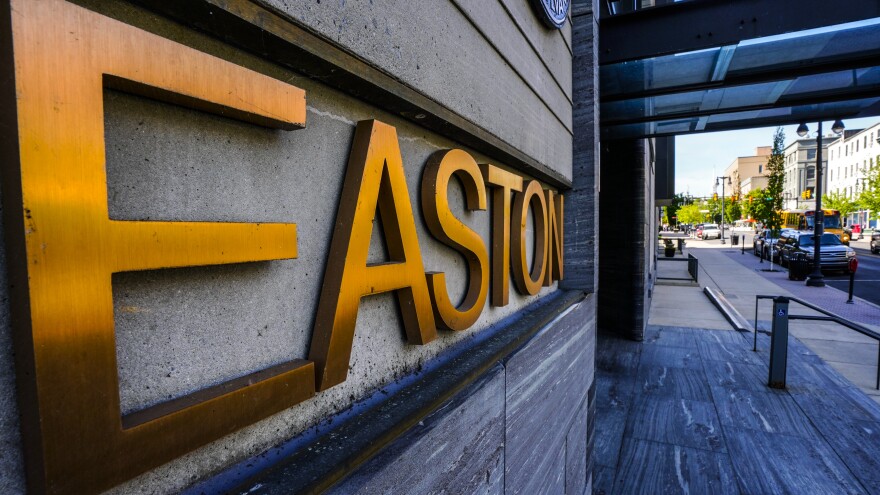EASTON, Pa. — A new ordinance passed in Easton will help to promote housing access to the oft-neglected middle class, Councilman Frank Pintabone said.
Introduced previously by Pintabone, the ordinance aims to promote the development of workforce housing throughout the city.
It requires certain multifamily projects that benefit from public funding or tax incentives to include affordable housing units for moderate-income households.
“Affordable,” in this case, amounts an occupant paying no more than 30% of their gross household income for rent or mortgage, utilities and other applicable fees.
The legislation defines “Workforce Housing” as residential units affordable to households earning 80% to 120% of the Area Median Income, as per the U.S. Department of Housing and Urban Development.
Developers under the program can opt to set aside a portion of their new projects for those who fit the criteria, or pay a fee of $10,000 per unit to opt out.
Money raised from the ordinance could then be pooled into a fund to help promote workforce housing initiatives via grants or other incentives.
'Don't think it really addresses anything'
Before the bill could cross the finish line, there were a few points to address.
Vice Mayor Ken Brown raised a concern over who could orchestrate the operation, alluding to a third-party operation that could help if “it gets overwhelming to the point that we should open up enough to look at that.”
Pintabone said the fee charged through the program would be so small “we would lose all the money paying the third party.”
“Every developer I know was going to just pay the $10,000 per unit, but I will vote on it because I believe in workforce housing and affordable housing."Easton Mayor Sal Panto Jr.
Mayor Sal Panto Jr. conceded that in the past he had spoken out against the ordinance, as “I don’t think it really addresses anything.”
“Every developer I know was going to just pay the $10,000 per unit, but I will vote on it because I believe in workforce housing and affordable housing,” Panto said.
Pintabone explained that developers such as Greater Shiloh Church were in the process of creating housing that could benefit from some of the workforce housing money.
But Panto responded that “affordable housing doesn’t work if you’re going to keep giving grants to cover the gap.”
Panto suggested the ordinance could potentially lead to developers building at a loss, which could impact interest for construction in Easton.
But previously, Pintabone had stated he had suggested the project to developers include VM Development, Peron Development and City Center, with all responded positively to the concept.
'Help us drive costs down'
Councilman Roger Ruggles suggested the funds to build housing are not the ideal solution.
“We can't solve the problem of affordable housing by building housing," Ruggles said. "We just can't.
"We can't build enough houses to do that, and we need to look at that problem and figure out ways in which we can address it."
"I do think the more housing we produce on both ends, the low-income and the luxury in the middle class, I think that's what's going to help us drive costs down.”Easton City Councilman Frank Pintabone
Pintabone argued that more housing results in lower prices for the overall market.
“I do think if you build more, if I have 20 people fighting for two houses, as the owner of the house, I can mark it up as high as I want to let them fight over it," Pintabone said.
"If I have 20 houses, only two people, that price is going to come down, because they have options.
“So I do think the more housing we produce on both ends, the low-income and the luxury in the middle class, I think that's what's going to help us drive costs down.”
Asked about the needed units — Lehigh Valley Planning Commission previously said Easton was about 413 homes shy — Pintabone pointed to 70 units under development in the downtown, and 150 planned for South Side.
The ordinance ultimately passed 7-0.
Looking to the future
Looking to the future, Pintabone said the city likely will need to explore methods such as the workforce housing initiative for Easton to become more self-sufficient, as opposed to waiting for state and federal funding.
"We need support from the government. And you know, it's a fight, because you're battling 2,700 municipalities in the Commonwealth for the same bucket of money."Easton Councilman Frank Pintabone
“A lot of our developers are supportive and interested in doing workforce," Pintabone said. "The problem comes when you're doing lower than market rate rent. It's a loss. They lose money.
“So we need support from the government. And you know, it's a fight, because you're battling 2,700 municipalities in the Commonwealth for the same bucket of money.
"We can't just put it on government. We have to put it on public, private partnerships, nonprofits and everything else.”


